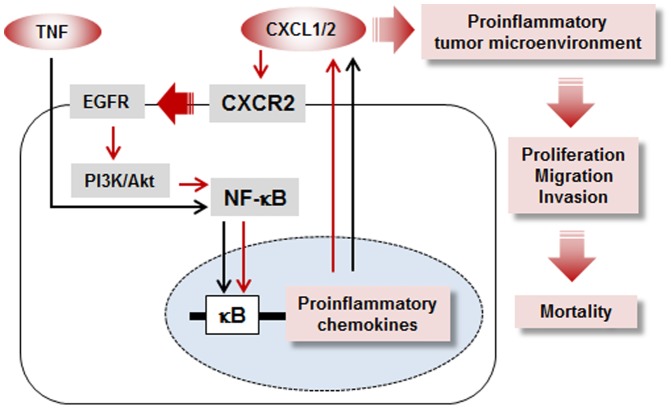Figure 8. Proposed mechanisms by which CXCR2-driven cancer progression involves proinflammatory chemokines CXCL1/2 in CXCR2 positive ovarian cancer cells.
TNF, a proinflammatory cytokine abundantly expressed in ovarian cancer, induces NF-κB activation followed by secretion of proinflammatory chemokines such as CXCL1-3 and CXCL8, all of which contain κB sites in their promoters (black line). In particular, these CXCR2 ligands (CXCL1-3 and CXCL8) respond to CXCR2 positive cancer cells (but not CXCR2 negative cells), thereby potentiating NF-κB activation via EGFR-transactivated Akt signaling. The enhanced NF-κB activity induces further CXCL1/2 secretion (red lines) reinforcing the proinflammatory tumor microenvironment to promote ovarian cancer progression (such as peritoneal tumor dissemination and massive ascites) followed by higher mortality rates. Therefore, inflammatory conditions can further intensify NF-κB activation in CXCR2 expressing ovarian cancer cells leading to acceleration of cancer progression.

